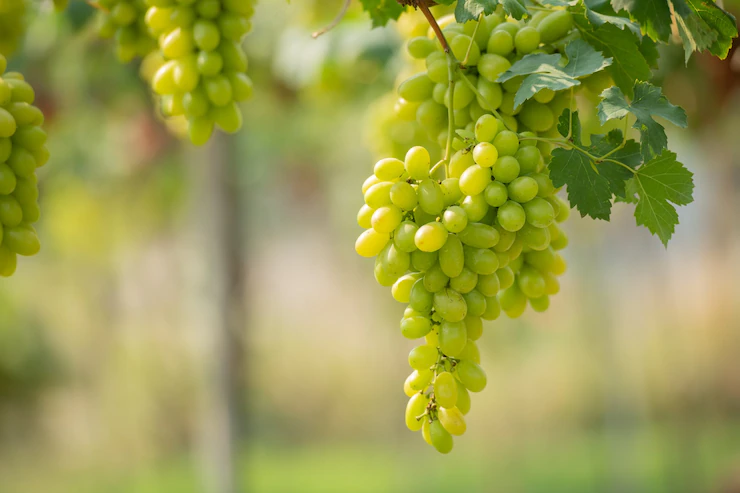Grapes are a versatile and widely cultivated fruit that can thrive in various regions of South Africa. Whether you’re considering growing grapes for commercial vineyards or as part of your home garden, here are ten important things you should know:
- Climate and Region: Grapes thrive in warm to hot climates with specific temperature ranges. South Africa has several grape-growing regions, including the Western Cape, Breedekloof, and Olifants River Valley. Choose a region with a Mediterranean climate, characterized by warm, dry summers and mild winters.
- Variety Selection: There is a wide range of grape varieties available, each with its unique flavor, color, and growing requirements. Popular grape varieties grown in South Africa include Chenin Blanc, Sauvignon Blanc, Cabernet Sauvignon, and Shiraz. Consider factors such as climate suitability, market demand, and vineyard objectives when selecting grape varieties.
- Soil Requirements: Grapes prefer well-drained soils with good water-holding capacity. Conduct a soil analysis to determine the pH level and nutrient content of your soil. Grapes generally prefer a slightly acidic to neutral soil with a pH range of 6.0 to 7.0. Amend the soil with organic matter and appropriate fertilizers based on soil test results.
- Vineyard Design and Planting: Plan the layout of your vineyard carefully, considering factors such as row orientation, spacing, and trellis systems. Proper spacing between grapevines is crucial to allow for air circulation and facilitate vineyard management practices. The spacing between vines typically ranges from 1.5 to 3 meters within rows and 2.5 to 3 meters between rows.
- Irrigation: Grapes require regular and sufficient irrigation to ensure optimal growth and fruit development. Implement an efficient irrigation system, such as drip irrigation or overhead sprinklers, to provide consistent water supply while minimizing water wastage. Monitor soil moisture levels and adjust irrigation accordingly based on the vine’s growth stage and climatic conditions.
- Pruning and Training: Pruning is essential for shaping the vine, managing canopy growth, and optimizing fruit production. Different grape varieties have varying pruning techniques and training systems. Learn about the specific pruning requirements for your chosen grape variety and adopt proper pruning practices during the dormant season.
- Fertilization: Grapes have specific nutrient requirements for healthy growth, fruit production, and vine longevity. Conduct a soil analysis and consult with agricultural experts to determine the appropriate fertilization regimen. Apply fertilizers with nitrogen, phosphorus, and potassium, along with micronutrients, based on the vine’s nutrient needs and the specific soil conditions.
- Pest and Disease Management: Grapes are susceptible to various pests and diseases, including grapevine leafhoppers, mealybugs, powdery mildew, and downy mildew. Implement integrated pest and disease management strategies, including regular monitoring, cultural practices, biological controls, and targeted pesticide applications when necessary. Practice good vineyard hygiene to minimize disease pressure.
- Harvesting: Grapes are typically harvested when they reach their desired sugar content, flavor, and color. Harvesting time varies depending on the grape variety and the intended purpose of the grapes, whether for table consumption or winemaking. Monitor grape ripeness regularly and harvest by hand, gently detaching the clusters from the vine.
- Post-Harvest Handling and Storage: After harvesting, handle grapes with care to preserve their quality. Sort and remove any damaged or unripe grapes. Store them in a cool, well-ventilated area to maintain freshness. Proper post-harvest handling helps prolong the shelf life of grapes and ensures their marketability.
By considering these ten crucial factors before growing grapes in South Africa, you’ll be better equipped to establish and manage a successful vineyard. Stay updated on local research, industry best practices, and consult with local viticultural experts for tailored guidance. With proper care and attention, you can enjoy a fruitful harvest of grapes and potentially even produce exceptional South African wines.
Image by jcomp on Freepik
Join 'Farmers Mag' WhatsApp Channel
Get the latest Farming news and tips delivered straight to your WhatsApp
CLICK HERE TO JOIN






